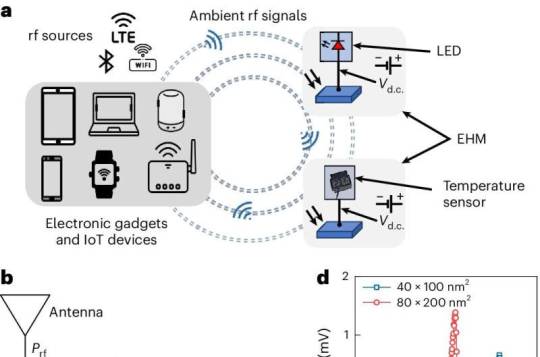#universities in singapore
Explore tagged Tumblr posts
Text

Looking to study in one of Asia's most vibrant and innovative cities? Singapore boasts some of the world's leading universities, renowned for their cutting-edge research, academic excellence, and global outlook. Check out the top universities in Singapore for 2024.
Learn more at https://tinyurl.com/3tybbn6k
Contact us for more information: Phone: +91 9711617217 Email: [email protected]
#Universities in Singapore#Engineering#Education#Engineering Universities#Management Universities#Engineering Colleges#Higher Education#Study Abroad#Singapore#Top Universities 2024
0 notes
Text
Study In Singapore: Universities, Scholarship, Visa
Studying in Singapore is an increasingly popular choice for international students due to the country's excellent education system, diverse cultural environment, and numerous opportunities for personal and professional growth. Here's an overview of what you should know about studying in Singapore:
World-Class Education: Singapore is home to several renowned universities and institutions that consistently rank among the top in the world. The National University of Singapore (NUS) and Nanyang Technological University (NTU) are two of the most prestigious universities in the country, offering a wide range of programs.
Diverse and Multicultural Environment: Singapore is a melting pot of cultures and ethnicities. This multicultural environment offers students the opportunity to interact with people from all over the world, providing a rich and diverse cultural experience.
Safe and Clean: Singapore is known for its high level of safety and cleanliness. It's one of the safest cities in the world, making it an ideal destination for international students who want to focus on their studies without worrying about personal safety.
Strong Economy: Singapore boasts a robust and rapidly growing economy. As a student, you can tap into numerous internship and job opportunities in various industries. The country is a global business hub, offering excellent prospects for career development.
English as the Medium of Instruction: English is one of the official languages of Singapore, and it's the primary language of instruction in most universities. This makes it easier for international students to adapt to the academic environment.
Financial Assistance: Singapore offers scholarships and financial aid options for international students. These can help reduce the financial burden of studying in a foreign country.
Quality of Life: Singapore provides a high quality of life. It has excellent healthcare, efficient public transportation, and a wide range of entertainment and recreational options. From diverse cuisine to vibrant nightlife, there's something for everyone.
Global Hub for Research and Innovation: Singapore is investing heavily in research and innovation, making it an attractive destination for those interested in cutting-edge research. The country is home to various research centers and is a leader in technology and innovation.
Strategic Location: Singapore's location in Southeast Asia provides easy access to other Asian countries. Traveling to neighboring countries is relatively simple and affordable, allowing you to explore different cultures and landscapes during your study breaks.
Multilingual Society: While English is widely spoken, you'll also have the opportunity to pick up some basic knowledge of other languages like Mandarin, Malay, and Tamil due to Singapore's multilingual society.
0 notes
Text
Study In Singapore For Indian Student - Universities, Scholarship, Visa
Studying in Singapore has become an attractive option for international students due to its high-quality education system, vibrant cultural scene, and strategic location as a global hub for business and innovation. Here's an overview of what studying in Singapore entails:
Education System: Singapore is renowned for its excellent education system, consistently ranking high in global education rankings. The country offers a wide range of programs from primary to tertiary education, including universities, polytechnics, and vocational institutions. English is the primary language of instruction, making it easier for international students to adapt.
World-Class Universities: Singapore is home to several world-class universities, including the National University of Singapore (NUS), Nanyang Technological University (NTU), and Singapore Management University (SMU). These institutions offer a diverse range of programs spanning various fields, attracting students from all around the world.
Multicultural Environment: Singapore's multicultural environment is a unique aspect of studying there. The country's diverse population contributes to a rich cultural tapestry, exposing students to various perspectives and backgrounds. This exposure enhances cross-cultural understanding and prepares students for a globalized world.
Strategic Location: Singapore's strategic location in Southeast Asia offers students numerous opportunities for networking, internships, and exposure to regional business and innovation trends. The country's thriving economy and business-friendly policies make it a desirable destination for those pursuing careers in fields such as finance, technology, and entrepreneurship.
Research and Innovation: Singapore places a strong emphasis on research and innovation. Its universities and research institutions collaborate with industry partners to drive cutting-edge research in various fields. Students have access to state-of-the-art facilities and the opportunity to work on innovative projects.
Scholarships and Financial Support: The Singaporean government and universities offer various scholarships, grants, and financial aid options to international students. These programs help alleviate the financial burden of studying abroad and recognize academic excellence and potential.
Quality of Life: Singapore boasts a high standard of living with modern infrastructure, efficient public transportation, and a low crime rate. The city-state is known for its cleanliness, safety, and excellent healthcare system, providing a comfortable environment for international students.
Cultural Experiences: Beyond academics, Singapore offers a plethora of cultural experiences. From its historic neighborhoods like Chinatown, Little India, and Kampong Glam to its modern landmarks like Marina Bay Sands and Gardens by the Bay, students can explore a blend of tradition and modernity.
Networking Opportunities: The global business and tech community in Singapore provides ample opportunities for networking and career advancement. Many multinational corporations have regional headquarters in Singapore, creating a hub of professional connections.
Post-Study Work Opportunities: Singapore offers post-study work opportunities for international graduates. The country's robust economy and demand for skilled professionals make it possible for graduates to find job placements and contribute to the local workforce. In summary, studying in Singapore offers a blend of top-notch education, a multicultural environment, excellent quality of life, and promising career prospects. With its strategic location, strong emphasis on research and innovation, and various support programs, Singapore has emerged as a compelling destination for international students seeking a world-class education and a global outlook.
#study in singapore#universities in singapore#singapore student visa#singapore scholarship for indian students
0 notes
Text
Study in Singapore: Universities, Eligibility, Cost and Scholarship
Singapore is renowned as a global education hub, attracting students from all over the world to pursue their studies in this vibrant city-state. Known for its excellent academic institutions, diverse culture, and high standard of living, Singapore offers a conducive environment for learning and personal growth. One of the key factors that make studying in Singapore attractive is the presence of prestigious universities and educational institutions. Institutions like the National University of Singapore (NUS), Nanyang Technological University (NTU), and Singapore Management University (SMU) consistently rank among the top universities in the world. These institutions offer a wide range of undergraduate, postgraduate, and doctoral programs across various disciplines, including business, engineering, sciences, arts, and social sciences. The quality of education provided by these institutions is recognized globally, ensuring that students receive a valuable and internationally recognized degree. Singapore's education system is known for its emphasis on innovation, research, and experiential learning. Students benefit from state-of-the-art facilities, advanced technology, and well-equipped laboratories that foster a practical approach to education. Additionally, Singapore's universities collaborate with industry partners, allowing students to engage in internships, industry projects, and research opportunities that enhance their skills and employability. The multicultural and cosmopolitan nature of Singapore makes it an ideal destination for international students. With its diverse population and a rich blend of cultures, students have the opportunity to interact with people from various backgrounds, broadening their perspectives and fostering cross-cultural understanding. English is widely spoken in Singapore, which makes it easier for international students to communicate and integrate into the community. Singapore's strategic location in Southeast Asia provides students with the advantage of exploring the region. With its excellent connectivity and transportation infrastructure, students can easily travel to neighboring countries and experience different cultures, landscapes, and traditions. This geographical advantage also opens up career opportunities for students, as Singapore serves as a regional hub for numerous industries such as finance, technology, logistics, and healthcare. Moreover, Singapore offers a safe and clean environment, with a strong emphasis on law and order. The city-state consistently ranks high in terms of safety, making it an ideal place for students to focus on their studies without concerns about personal security. However, it's important to note that studying in Singapore can be financially demanding. The cost of living, tuition fees, and accommodation expenses can be relatively high compared to other countries. However, various scholarships, grants, and financial assistance schemes are available to help alleviate the financial burden for deserving students.
#study in singapore#universities in singapore#singapore student visa#singapore scholarship for indian students
1 note
·
View note
Text
Study in Singapore: Universities, Eligibility, Cost and Scholarship
Studying in Singapore is a popular choice for many international students due to its reputation as a leading educational hub. Singapore offers a wide range of high-quality educational institutions, a multicultural environment, and excellent academic programs. Let's explore some key aspects of studying in Singapore: Educational Institutions: Singapore is home to several renowned universities and institutions that offer a diverse range of study programs. The National University of Singapore (NUS), Nanyang Technological University (NTU), and Singapore Management University (SMU) are among the top universities in Singapore, known for their academic excellence and research opportunities. In addition to universities, there are also polytechnics and private institutions that offer vocational and technical education. Academic Excellence: Singapore has a strong emphasis on education, and its institutions are known for their high standards of teaching and research. The curriculum is designed to provide students with a well-rounded education, combining theoretical knowledge with practical skills. The country also promotes innovation and entrepreneurship, fostering an environment that encourages creativity and critical thinking. Multicultural Environment: Singapore is a multicultural society, with a diverse population comprising people from different ethnicities, cultures, and backgrounds. Studying in such an environment allows students to experience different cultures, perspectives, and languages. This cultural diversity enhances the learning experience and promotes cross-cultural understanding, preparing students to thrive in a globalized world. Safety and Infrastructure: Singapore is known for its excellent infrastructure, efficient transportation system, and high safety standards. The city-state offers a clean and conducive environment for learning, with modern campuses, well-equipped libraries, advanced laboratories, and state-of-the-art facilities. Students can enjoy a comfortable and secure lifestyle while pursuing their studies. Scholarships and Financial Assistance: Singapore provides various scholarships and financial aid options to support both local and international students. These scholarships are offered by universities, government organizations, and private foundations. They aim to attract talented students and provide them with the opportunity to pursue their educational goals in Singapore. Global Opportunities: Singapore's strategic location in Southeast Asia opens up numerous opportunities for students. The country serves as a gateway to the region, with strong connections to industries, businesses, and research networks. Many multinational companies have their regional headquarters in Singapore, creating internship and job opportunities for students. Singapore's focus on innovation and technology also aligns with global trends, offering prospects for research collaborations and entrepreneurship. Quality of Life: Singapore is consistently ranked as one of the safest cities in the world, with a high standard of living. The city-state offers a vibrant lifestyle with a mix of cultural attractions, recreational facilities, shopping districts, and culinary delights. The efficient public transportation system makes it easy to explore the city and its surrounding areas. However, it's important to consider the cost of living in Singapore, which can be relatively high compared to some other countries. Students should plan their finances accordingly and explore available scholarships or part-time job opportunities. In conclusion, studying in Singapore provides a rewarding educational experience with its world-class institutions, multicultural environment, and global opportunities. The country's commitment to education, innovation, and international collaboration makes it an attractive destination for students seeking academic excellence and personal growth.
#study in singapore#universities in singapore#singapore student visa#singapore scholarship for indian students
0 notes
Text
i can't stop thinking about the Singapore gp so i drew a CoD F1 AU


#doodle#fanart#call of duty#cod mwii#mw2#modern warfare#horangi#könig#calisto allard#rozlin roze helms#kim horangi hong jin#korangi#körangi#rozecali#singapore gp 2023#f1#au#alternate universe
3K notes
·
View notes
Text
I'm sorry but James Vowles criticising how Red Bull has treated their drivers in the past, only to go and then treat Logan far worse while pulling the exact same shit Red Bull did, ie the exact behaviour he criticised and called them out for, is so freaking infuriating like the sheer hypocrisy -

#f1#formula 1#formula one#james vowles#logan sargeant#best of luck to logan in the future & to franco#but james its on sight#rooting for franco because he's being thrown straight into the deep end#like Singapore of all races will be his third f1 race#and as i said when it was announced daniel was leaving mclaren & oscar was getting the seat#it's never the drivers at fault for a teams shitty behaviour towards a driver#the hypocrisy from james is just leaving a very bad taste in my mouth#edit: also infuriating that of the latest batch of rookies oscar & yuki are the last ones standing#zhou currently has no confirmed seat#they're the only rookies of the past 4 years left#mick has no seat#nicolas latifi has gone back to business school which good for you nicky i hope you're doing well#sorry but i went back to university in 2023 too so i feel a kinship with him lmao#less said about that nameless haas driver the better#nyck is the endurance championship now i think#i dont think I'm missing anybody
282 notes
·
View notes
Text
lestappen cursed to never succeed at the same time… one of them must flop for the other to be on the front row
#what does the universe hold against them#lestappen#charles leclerc#max verstappen#f1#formula 1#cl16#mv33#singapore gp 2024
112 notes
·
View notes
Text

the devil's favorite prince
#oh how i love how this nickname suits him and came to me#lives in my head rent free#also poetic since most of italian tifosi don't really like him and this country is so rooted on christianity yk#(im italian and im head over heels for this silly guy)#carlitos#carlos sainz jr#monza gp 2024#lucifer really does love him#venere birthed him#ever since andrea cordovani called him IL DIAVOLO ROSSO after singapore#something shifted in the universe
45 notes
·
View notes
Text
VCARB / RB or however you are you are unreal for this and I see the game you play and BOY do I respect it! 🤤
#where’s max and why hasn’t he joined him yet?#the levels of this man#I would go back to university to study him solely#i’m unwell#well done Singapore#Singapore gp 2024#danny ric#dr3#f1#formula 1#daniel ricciardo#formula one#VCARB
32 notes
·
View notes
Text

Art we can play.......
#guitar#photography#collection#gas#love#guitars#steve vai#joe satriani#eric clapton#universe#ibanez#silver surfer#art#Guitar Museum Singapore
57 notes
·
View notes
Text












HAPPY HALLOWEEN : ↳ Halloween Horror Nights 2024 at Universal Studios Singapore
#✦ gifs#halloween horror nights#universal studios singapore#universal studios#hhn#spider#tw flashing#halloween
30 notes
·
View notes
Text
Study in Singapore: Universities, Eligibility, Cost and Scholarship
Studying in Singapore offers a unique and enriching educational experience. The city-state is renowned for its excellent education system, world-class universities, and vibrant multicultural environment. Whether you're interested in pursuing undergraduate, graduate, or research programs, Singapore provides numerous opportunities to further your academic and professional goals. Singapore is home to several prestigious universities and educational institutions, such as the National University of Singapore (NUS), Nanyang Technological University (NTU), Singapore Management University (SMU), and Singapore University of Technology and Design (SUTD). These institutions consistently rank among the top universities globally and offer a wide range of disciplines and programs across various fields of study. One of the main advantages of studying in Singapore is the high standard of education. The universities emphasize research and innovation, providing students with access to state-of-the-art facilities and cutting-edge technologies. Singapore's academic curriculum is designed to foster critical thinking, creativity, and practical skills, preparing students for the challenges of the modern workforce. Additionally, Singapore's strategic location in Southeast Asia makes it a gateway to a diverse and rapidly growing region. The country serves as a hub for international business and trade, attracting multinational companies and creating excellent internship and job opportunities for students. By studying in Singapore, you can benefit from its strong connections to industries and gain practical experience through internships, co-op programs, or industry collaborations. Singapore is also known for its cultural diversity and cosmopolitan lifestyle. The city blends Eastern and Western influences, offering a harmonious multicultural environment. As a student, you'll have the chance to interact with peers from various cultural backgrounds, broaden your perspectives, and build lifelong friendships. The vibrant and safe cityscape of Singapore provides an excellent backdrop for an active social life, with a multitude of attractions, events, and culinary experiences to explore. Furthermore, Singapore has a strong commitment to research and development, making it an ideal destination for those interested in pursuing advanced studies and academic research. The government invests significantly in scientific research and innovation, creating opportunities for students to engage in groundbreaking research projects and collaborate with renowned scholars. When it comes to student support and services, Singapore offers a comprehensive range of resources to ensure a fulfilling and successful academic journey. Universities provide extensive student support services, including academic advising, career counseling, health services, and extracurricular activities. Singapore also offers various scholarships, grants, and financial aid options to support both local and international students in their educational pursuits. In conclusion, studying in Singapore offers a world-class education, a multicultural environment, and excellent career prospects. The country's focus on research and innovation, coupled with its strategic location and vibrant lifestyle, makes it an attractive destination for students seeking a global educational experience. Whether you're interested in engineering, business, arts, sciences, or any other field, Singapore provides a conducive environment to excel academically and personally.
#study in singapore#universities in singapore#singapore student visa#singapore scholarship for indian students
0 notes
Text

Battery-free technology can power electronic devices using ambient radiofrequency signals
Ubiquitous wireless technologies like Wi-Fi, Bluetooth, and 5G rely on radio frequency (RF) signals to send and receive data. A new prototype of an energy harvesting module—developed by a team led by scientists from the National University of Singapore (NUS)—can now convert ambient or "waste" RF signals into direct current (DC) voltage. This can be used to power small electronic devices without the use of batteries. RF energy harvesting technologies, such as this, are essential as they reduce battery dependency, extend device lifetimes, minimize environmental impact, and enhance the feasibility of wireless sensor networks and IoT devices in remote areas where frequent battery replacement is impractical. However, RF energy harvesting technologies face challenges due to low ambient RF signal power (typically less than -20 dBm), where current rectifier technology either fails to operate or exhibits a low RF-to-DC conversion efficiency. While improving antenna efficiency and impedance matching can enhance performance, this also increases on-chip size, presenting obstacles to integration and miniaturization.
Read more.
43 notes
·
View notes
Text
he is…so babygirl to me…..

#hhn#halloween horror nights#hhn singapore#dr white#doctor white#universal studios#hhn icons#artists on tumblr#my art#hhn fanart
20 notes
·
View notes
Text

A Male Saiga Antelope in Russia's Black Land National Park. These highly social antelope live in herds. Photograph By Valeriy Malee/Nature Picture Library
This Floppy-Nosed Antelope Was Nearly Gone. 20 Years Later, It’s Thriving.
Less than a decade ago, more than half of the world’s saiga antelope were lost to a mysterious disease. Its comeback is a rare and phenomenal conservation success.
— By Jason Bittel | December 14, 2023
Just two decades ago, it seemed as if we might need to write a eulogy for the saiga antelope.
Cut down by widespread poaching and waves of disease, by 2003, just 6 percent of the floppy-nosed ungulates remained in Kazakhstan, Mongolia, Russia, and Uzbekistan.
But today, scientists are rejoicing at the saiga’s unlikely rebound.
There are now 1.9 million saiga antelope across Eurasia, according to the most recent estimates released this week. So many saiga, in fact, that the International Union for Conservation of Nature is upgrading the Red List status for the species from critically endangered to near threatened.
“There's a lot of conservation doom and gloom, and there isn't very much attention paid to conservation successes,” says E.J. Milner-Gulland, a conservation scientist at the University of Oxford and co-founder of the U.K-based Saiga Conservation Alliance. “It’s quite a vindication of 20 years of hard work by lots of people.”
To get a sense of just how far this species has come, in 2015, more than half of the worldwide population of saiga antelope were lost to a mysterious blood disease.
“This is phenomenal news,” says Joel Berger, an ecologist at Colorado State University and a senior scientist at the Wildlife Conservation Society, in an email.
“At a time when so many species and populations are in deep swan dives, to witness the recovery of saiga—a species deserving of more recognition in its own right—is something we all need to celebrate,” he says.

Male Saiga Antelope Battle in Black Lands National Park. Males and their horns are a specific target of poachers. Photograph By Valeriy Malee/Nature Picture Library
The Saiga’s Downward Spiral
Those who have been paying attention to the saiga’s saga know that it’s been a wild ride.
“Twenty years ago, it had the fastest increase in threat status of any mammal,” says Milner-Gulland. “The population had plummeted by more than 90 percent over a really short time of a few years, so it went straight in at critically endangered.”
As for what happened, Milner-Gulland explains that the saiga’s downfall can be attributed to several factors. For starters, saiga horn has great value in China, Singapore, Vietnam, and Malaysia as a component in traditional medicine. And this demand, coupled with the breakup of the Soviet Union, led to a dramatic rise in hunting.
It’s a Symbol of the Wild Steppe, of Independence and Freedom.
— E.J. Milner-Gulland, Conservation Scientist at the University of Oxford
“The economies of these countries basically collapsed,” she says. “And they were living in very harsh conditions on the steppe. So they turned to poaching.”
Fencing along the border between Kazakhstan and Uzbekistan also put a barrier in the middle of the saiga’s migratory route, while infrastructure development cut into saiga habitat. Finally, an unknown trigger turned a naturally occurring microbe in the saiga’s characteristic nose into a virulent pathogen, leading to the mass die-offs.
It’s for all these reasons that the IUCN has chosen not to de-list the saiga completely.
“The near threatened category is right for the saiga, because we know that at any time, we could just get large numbers of them dropping dead again,” says Milner-Gulland. “They are very vulnerable.”

A Path to Recovery
Just as the threats to the saiga were multi-faceted, so too have been the efforts to protect the species, which are important seed dispersers and grazers that contribute to plant biodiversity.
For instance, an international collaboration between countries where saigas roam, countries that traditionally consume saiga products, and other stakeholder nations, including the United States, led to a memorandum of understanding in 2006 to conserve the species, restore its habitat, and restrict harvest to a sustainable level.
For its part, Kazakhstan’s government focused on stronger anti-poaching measures, including law enforcement to prevent saiga hunting. The Saiga Conservation Alliance supplied financing for gasoline, uniforms, motorbikes, and shelters for those rangers, who live in the harsh, windswept grasslands. Customs agents also improved detection of saiga products leaving the country as part of the illicit wildlife trade. Lastly, the country designated multiple protected areas totaling more than 12 million acres of saiga antelope habitat.
Now that economic conditions have leveled out and local people don’t have to choose between their own survival and saving saiga, there has also been a dramatic shift in support for the species.
“The thing about saiga is the local people really love it,” says Milner-Gulland. “It’s a symbol of the wild steppe, of independence and freedom.”

Saiga (Drinking on Southern Russia's Astrakhan Steppe) can migrate up to 600 miles over summer and winter. Photograph By Valeriy Malee/Nature Picture Library
#Animals 🦓 🦒 🐘#Floppy Nosed Antelope#Kazakhstan 🇰🇿 | Mongolia 🇲🇳 | Russia 🇷🇺 | Uzbekistan 🇺🇿#University of Oxford#Saiga Antelope#China 🇨🇳 | Singapore 🇸🇬 | Vietnam 🇻🇳 | Malaysia 🇲🇾#E.J. Milner-Gulland | Conservation Scientist | University of Oxford
44 notes
·
View notes